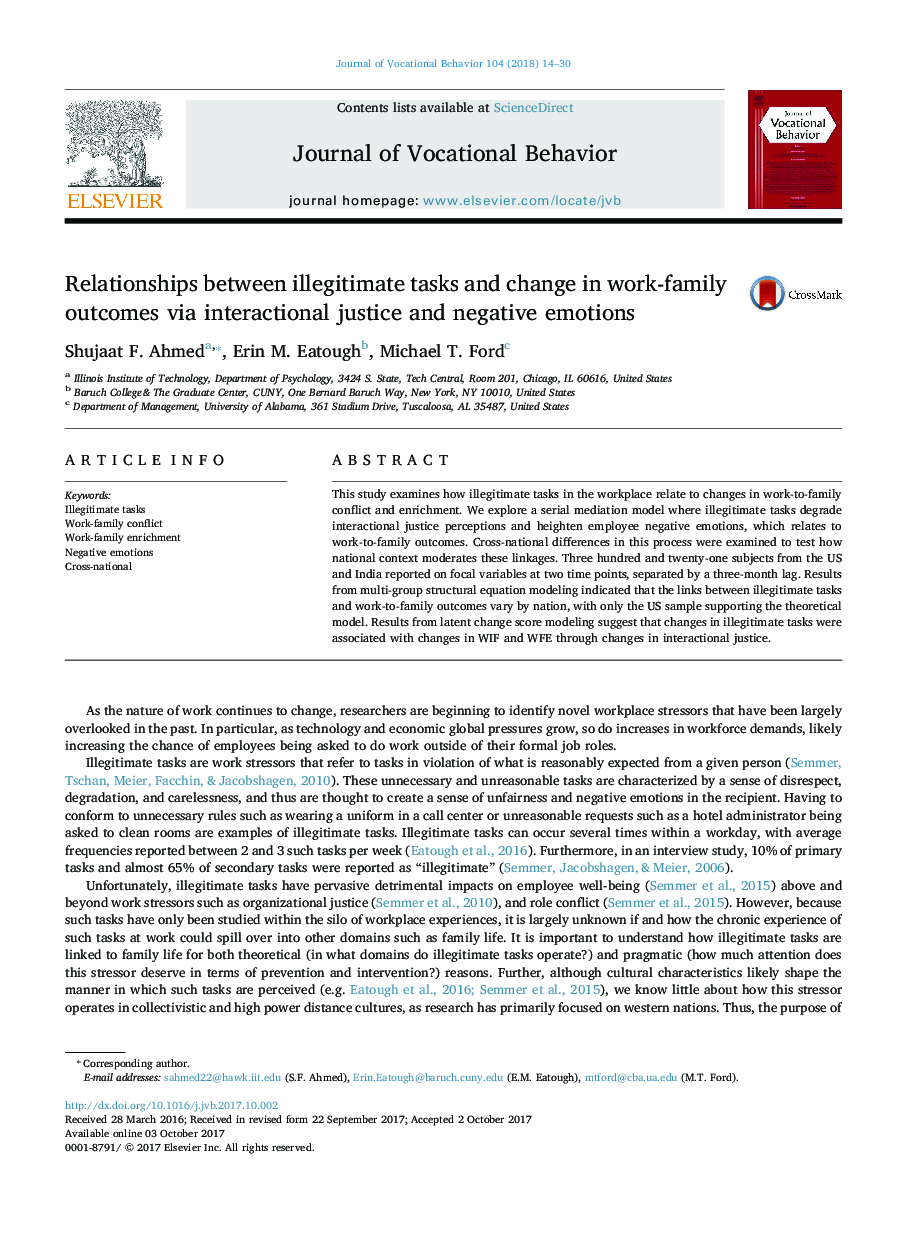| کد مقاله | کد نشریه | سال انتشار | مقاله انگلیسی | نسخه تمام متن |
|---|---|---|---|---|
| 5035063 | 1471796 | 2018 | 17 صفحه PDF | دانلود رایگان |
- Illegitimate tasks and work-family outcomes were examined via a serial mediation.
- SEM and LCSM analyses show linkages differ by nation.
- The US sample supported the model, the Indian sample did not fully support it.
- Culture may be important to consider when studying illegitimate tasks.
- A reciprocal relationship between negative emotions and WF outcomes was unsupported.
This study examines how illegitimate tasks in the workplace relate to changes in work-to-family conflict and enrichment. We explore a serial mediation model where illegitimate tasks degrade interactional justice perceptions and heighten employee negative emotions, which relates to work-to-family outcomes. Cross-national differences in this process were examined to test how national context moderates these linkages. Three hundred and twenty-one subjects from the US and India reported on focal variables at two time points, separated by a three-month lag. Results from multi-group structural equation modeling indicated that the links between illegitimate tasks and work-to-family outcomes vary by nation, with only the US sample supporting the theoretical model. Results from latent change score modeling suggest that changes in illegitimate tasks were associated with changes in WIF and WFE through changes in interactional justice.
Journal: Journal of Vocational Behavior - Volume 104, February 2018, Pages 14-30
